by Ayusch Jain
If you want to become an Android developer, read these books

I’ve been an Android developer for the last three years, and in that time many books have helped me in my journey from a novice to an expert. When I started, there seemed to be no helpful articles that could direct me towards the best resources for Android development.
Most articles were vague and often seemed to be written by people who had little or no hands-on experience. So, I thought I would write this article and clear the path for everyone once and for all.
Given below are my top 10 picks for books on Android Development — you can find links to all of them on my blog. The list includes books for every level from beginner to advanced. So, read along.
Head First Android Development
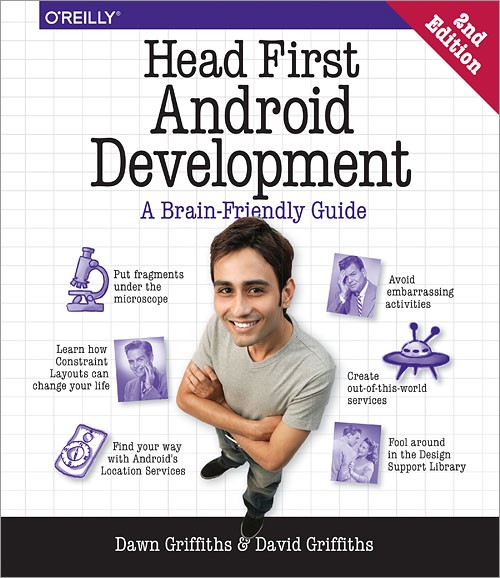
This was the first book I read on Android development. It is perfect for Android developers who are beginners or are at an intermediate level. This book won’t get you to an advanced level and won’t touch on any topics like RxJava, ButterKnife or Data Binding, but it will get your fundamentals on-point.
It covers everything from how to set up your IDE to creating a functioning Android app. It has a unique way of explaining concepts with thought bubbles and real-life scenarios. It also contains interesting exercises such as ‘fill up magnets’ and ‘matchings’ to make things more interesting.
If you are new to Android development and want to read up on it, then it’s the perfect book to start with — trust me on this.
LEVEL: Beginner
Android App Development for Dummies
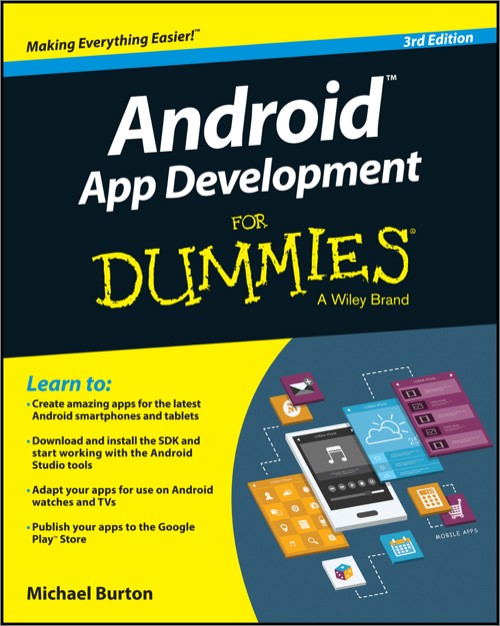
Like my first suggestion, this is a legacy book. By now, the Dummies series probably has books on every topic ?. This book is really good for absolute beginners, managing to explain concepts clearly with simple language and fewer technical words.
It will guide you on:
- How to install all the tools you need
- Designing a good user interface
- Deciding between charging for your app (and at what price) or offering it for free
- Handling user input
- Design differences between phone and tablet applications
- Ways to avoid common pitfalls
- Inspirational sample apps.
If you are unsure of where to start, you can definitely go with this one.
LEVEL: Beginner
Java: A Beginner’s Guide, Sixth Edition
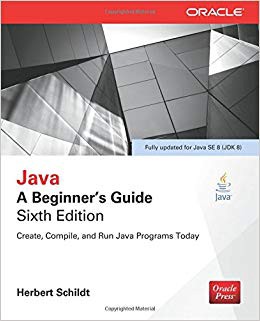
In order to learn Android development or become better at Android development, you need to get your Java fundamentals right and this book is the perfect place to start.
This book is updated for Java 8, so it includes topics such as lambda expressions and default interface methods.
This is very basic and good for beginners wanting to get started with Java for Android development.
LEVEL: Beginner
Hello, Android: Introducing Google’s Mobile Development Platform
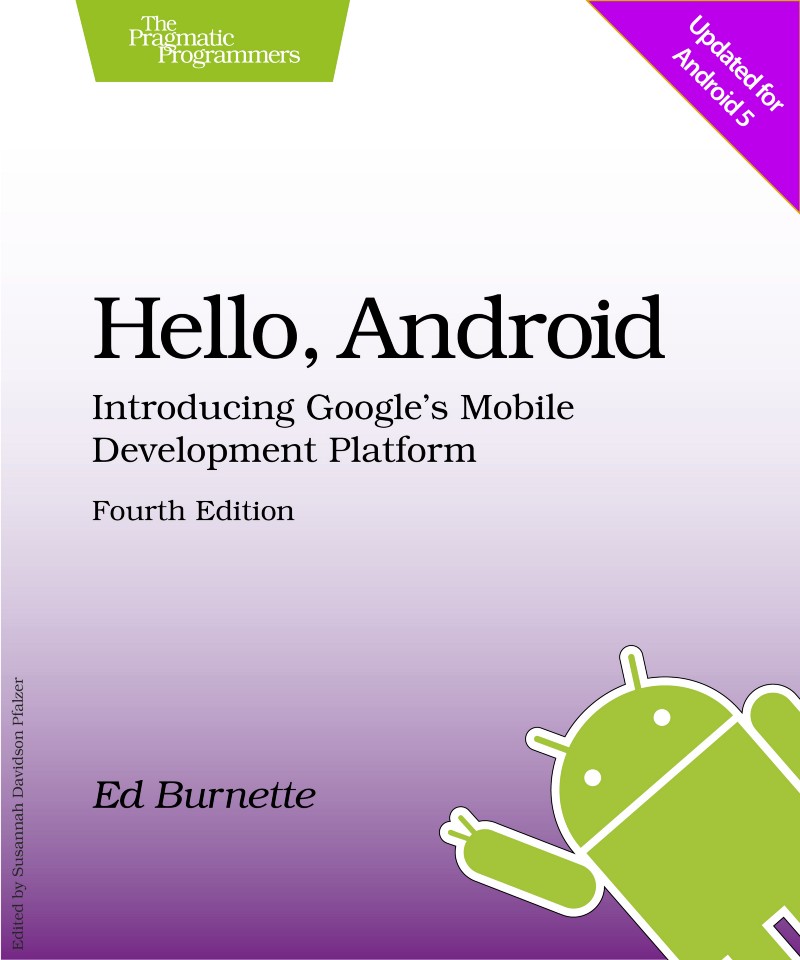
This book is also for beginners, but it has a level of abstraction. It doesn’t explain all concepts in depth and only gives you the code. If that’s your thing, you can go with it.
LEVEL: Beginner to intermediate
Busy Coder’s Guide to Android Development
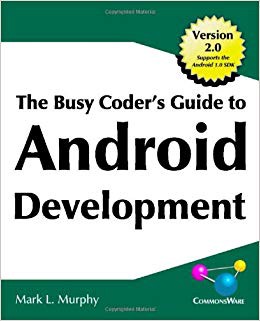
To be honest, I haven’t read this book myself. The books I’ve provided above were more than enough to keep me engrossed ? but, I’ve heard from many that this book is good for developers at all levels.
It covers everything there is in Android development and should not disappoint new or intermediate Android developers.
If you’re a professional developer, I suggest that you instead try the Professional Android 4th Edition (detailed below).
LEVEL: Beginner to intermediate
Android Programming: The Big Nerd Ranch Guide
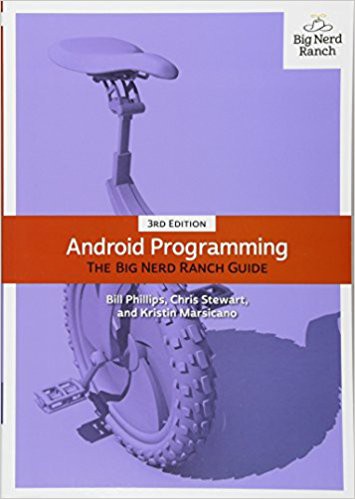
The Big Nerd Ranch Guide series is a familiar book series in programming. They have books on mobile and web development and some other technologies. But, let’s talk about the one for Android.
The Big Nerd Ranch Guide is an introductory book for people who know Java and want to learn about Android development.
It consists of many examples to assist the theory. You’ll be developing apps such as catalog crime scenes, photo browsers, jogging route trackers and more.
Although it’s often recommended for beginners, I think it gets a little too technical and you would need to cite some other resources alongside this book. But for someone who is at an intermediate level and wants to brush up on their skills, this is the perfect book. I can’t recommend it enough.
LEVEL: Intermediate
Android Cookbook
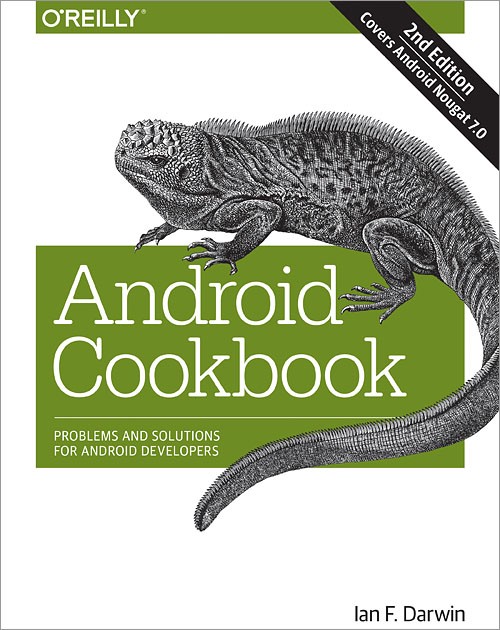
This is not a book for beginners. This is a handbook for professional Android developers who are looking for a quick guide on some topics they are having a hard time with. The explanations are concise and shallow. Do not expect to be spoon-fed if you opt-in for this book.
With that being said, it’s perfect for professionals. Just a quick guide and not too much spoon feeding. Advanced topics also are briefly touched on with solutions left as an exercise.
As an example: working on a location-aware app involves much more sophistication than simply requesting a location update. Yet, the location chapters only cover the basic stuff that helps novices to get their feet wet, not to write a real-world app.
LEVEL: Professionals and experts
Professional Android 4th edition
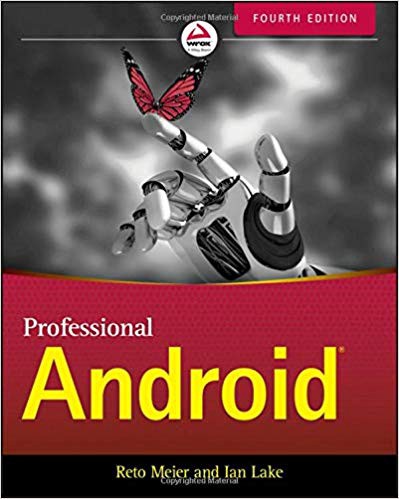
As the name suggests, this book is for experienced campaigners.
It covers best practices, Android app lifecycles and UI design techniques such as building a robust app for different screen sizes, including tablets.
It includes many real-world example applications to provide you with a hands-on experience of professional Android development. But beware, this book is really in-depth and requires some programming experience to get a grasp on its concepts.
For example, it includes JobScheduler, architectural components, an introduction to Kotlin, navigation patterns, and design patterns.
If you want to take your Android development game to the next level, do check out this book.
LEVEL: Advanced
Kotlin Programming by Example: Build real-world Android and web applications the Kotlin way
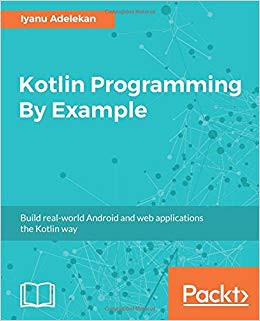
You’ll explore various features of Kotlin by building three applications of varying complexity. The first will be a classic Tetris game and an elaboration on OOP concepts.
The second is a messenger app with increased complexity. The final app is a place reviewer: a web application that will make use of the Google Maps API and Place Picker.
Note: It not only includes Android app examples but examples for building a web app as well.
That being said, I believe no single book can be enough to gain mastery of a language completely. The example in this book is enough to get a good hold on the language of Kotlin.
LEVEL: Anyone wanting to learn Kotlin
Kotlin for Android Developers: Learn Kotlin while developing an Android App
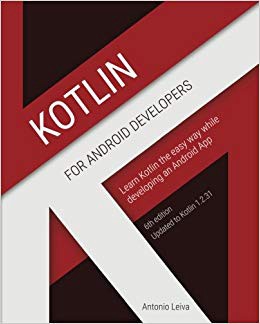
This is an e-book by Antonio Leiva. If you are an Android developer you’ve probably read his Medium articles.
This book does a good job of introducing the Kotlin programming language as it takes you through the course of developing an Android app. If you’re an Android developer and you want to start developing with Kotlin, this book is not a bad place to start (especially since it’s only one of very few Android/Kotlin tutorials available at the time of this writing).
However, this book seemed like it was rushed to be published because it felt quite unorganized throughout. It seems like the author didn’t care to explain a lot of what is being shown in the book in order to make it easier for himself.
LEVEL: Anyone wanting to learn Kotlin for Android
This article was originally posted here.
Like what you read ? Don’t forget to share this post on Facebook, Whatsapp and LinkedIn.
You can follow me on LinkedIn, Quora, Twitter and Instagram where I answer questions related to Mobile Development, especially Android and Flutter.
